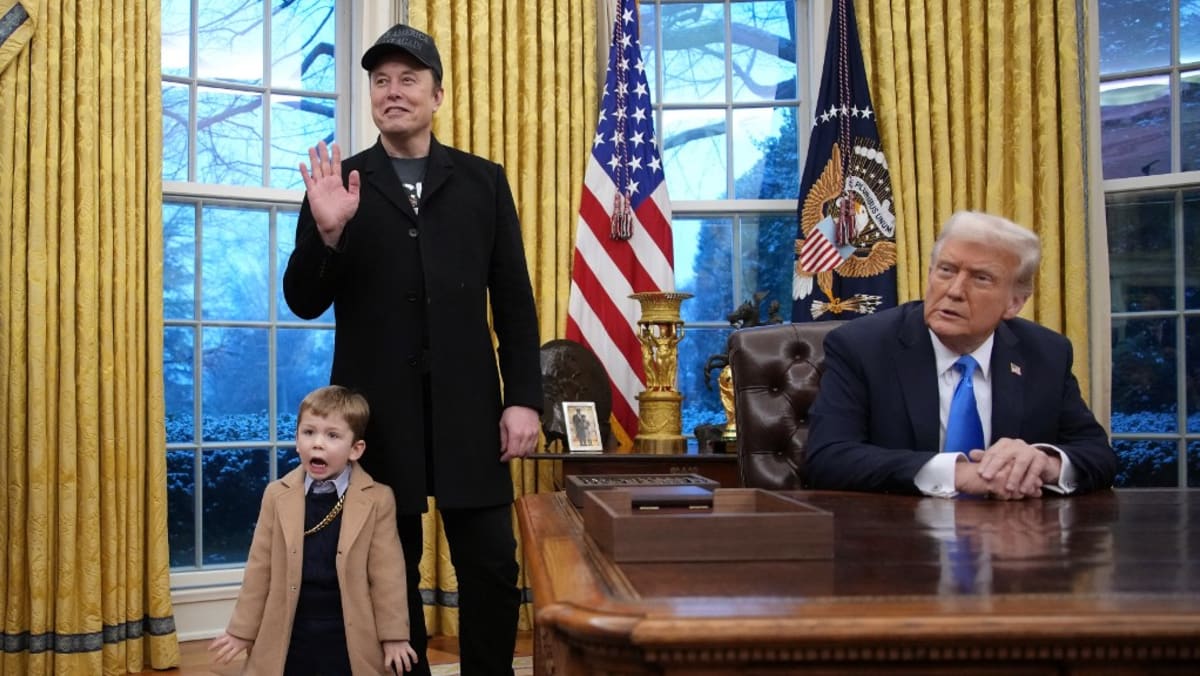Asia
Commentary: In Trump and Musk’s America, echoes of China’s past emerge

The Rise of Technological Efficiency in Government
In an era where technology is rapidly transforming how governments operate, Elon Musk’s engineering team has emerged as a formidable force in identifying and tackling inefficiencies in government spending. Armed with advanced AI technologies, these young engineers have proven to be significantly more effective than Mao’s Red Guards, who were once the symbol of revolutionary change in China. The media has been quick to highlight their achievements, noting that nearly 10,000 federal employees have been laid off or furloughed as a result of their efforts. This technological prowess has not only streamlined government operations but also set a new benchmark for efficiency in the public sector. The contrast between the old-school methods of the past and the cutting-edge tools of today underscores the transformative power of innovation in governance.
USAID Under Scrutiny
The United States Agency for International Development (USAID) has found itself at the center of attention as the first major department to face significant cuts. With a substantial budget of $42 billion, USAID plays a crucial role in promoting American soft power through foreign aid. However, Chinese officials have long criticized the organization, accusing it of funding media outlets and NGOs that allegedly disparage China. This criticism has been amplified by state media, which views the cuts as a positive development. USAID’s role in international aid and its influence on global perceptions make it a significant player, and its current challenges highlight the complex interplay between diplomacy, aid, and geopolitics.
China’s Bureaucratic Challenges
While Chinese officials may find delight in the restructuring of USAID, they would do well to introspect about their own bureaucratic inefficiencies. China’s governance structure is notorious for its red tape, which has become a major obstacle in revitalizing the country’s sluggish economy. The bureaucratic apparatus, which spans all levels of government, is often criticized for being overly complex and ineffective. This has led to significant challenges in implementing policies and driving economic growth. The situation is further complicated by the growing influence of state-owned enterprises, which often receive preferential treatment compared to private sector entities.
Bureaucratic Growth and Its Impact
Over the past decade, China’s leadership has increasingly sought to tighten its control over various aspects of society. While this approach was intended to enhance governance, it has inadvertently led to a more bloated and intrusive bureaucracy. Private entrepreneurs, in particular, have voiced their frustrations about unequal treatment in terms of market access and legal protections. The bureaucratic hurdles they face have stifled innovation and hindered economic progress. Despite these challenges, the government has been slow to address the root causes of these issues, opting instead for incremental reforms that have yielded limited success.
Reform Efforts and Their Limitations
In an effort to address these problems, the Chinese leadership established the Bureau of Private Economy, both at the national and local levels. The primary objective of this new bureaucratic entity is to provide better support for the private sector. However, many entrepreneurs remain skeptical about the effectiveness of this initiative. What they truly desire is a level playing field where they can compete fairly with state-owned enterprises, rather than the creation of yet another layer of bureaucracy. The formation of the Bureau of Private Economy highlights the complexities of reform in a system that is deeply entrenched in tradition and resistant to change.
The Need for Deeper Reforms
The Chinese leadership has openly acknowledged the debilitating effects of red tape on policy implementation and economic recovery. Over the past four years, a high-profile campaign to combat "formalism and bureaucratism" has been underway, spearheaded by Cai Qi, President Xi Jinping’s chief of staff. This campaign has sought to alleviate the burdens faced by local officials, who are often overwhelmed by mountains of paperwork and endless meetings. While these efforts have drawn significant attention, they have yet to yield meaningful results. The focus on symptoms rather than the root cause—a bloated and increasingly dysfunctional bureaucracy—underscores the need for more comprehensive reforms. Until these deeper structural issues are addressed, China’s bureaucratic challenges are likely to persist, hindering the country’s ability to achieve its economic and social goals.











